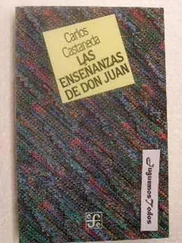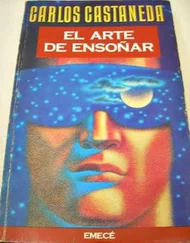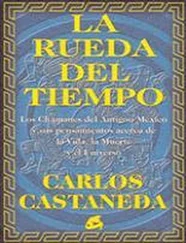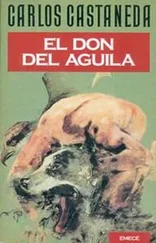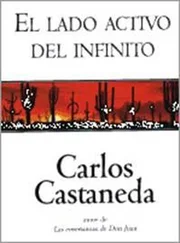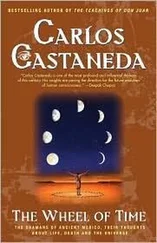Don Juan's own plants belonged to the species inoxia', there seemed to be no correlation, however, between that fact and differences that may have existed between the two species of Datura accessible to him.
The second ally was contained in a mushroom I identified as belonging to the genus Psilocybe; it was possibly Psilocybe mexicana, but the classification was only tentative because I was incapable of procuring a specimen for laboratory analysis.
Don Juan called this ally humito (little smoke), suggesting that the ally was analogous to smoke or to the smoking mixture he made with the mushroom. The smoke was referred to as if it were the real container, yet he made it clear that the power was associated with only one species of Psilocybe; thus special care was needed at the time of collecting in order not to confuse it with any of a dozen other species of the same genus which grew in the same area.
An ally as a meaningful concept included the following ideas and their ramifications: (1) an ally was formless; (2) an ally was perceived as a quality; (3) an ally was tamable; (4) an ally had a rale.
An ally was formless
An ally was believed to be an entity existing outside and independent of oneself, yet in spite of being a separate entity an ally was believed to be formless. I have established 'formlessness' as a condition that is the opposite of 'having definite form', a distinction made in view of the fact that there were other powers similar to an ally which had a definitely perceivable form. An ally's condition of formlessness meant that it did not possess a distinct, or a vaguely defined, or even a recognizable, form; and such a condition implied that an ally was not visible at any time.
An ally was perceived as a quality
A sequel to an ally's formlessness was another condition expressed in the idea that an ally was perceived only as a quality of the senses; that is to say, since an ally was formless its presence was noticed only by its effects on the sorcerer. Don Juan classified some of those effects as having anthropomorphic qualities. He depicted an ally as having the character of a human being, thus implying that an individual sorcerer was in the position of choosing the most suitable ally by matching his own character with an ally's alleged anthropomorphic characteristics.
The two allies involved in the teachings were presented by don Juan as having a set of antithetical qualities.
Don Juan categorized the ally contained in Datura inoxia as having two qualities: it was woman-like, and it was a giver of superfluous power. He thought these two qualities were thoroughly undesirable. His statements on the subject were definite, but he indicated at the same time that his value judgement on the matter was merely a personalistic choice.
The most important characteristic was undoubtedly what don Juan called its woman-like nature. The fact that it was depicted as being woman-like did not mean, however, that the ally was a female power. It seemed that the analogy of a woman may have been only a metaphorical way don Juan used to describe what he thought to be the unpleasant effects of the ally. Besides, the Spanish name of the plant, yerba, because of its feminine gender, may have also helped to create the female analogy. At any rate, the personification of this ally as a woman-like power ascribed to it the following anthropomorphic qualities: (1) it was possessive; (2) it was violent; (3) it was unpredictable; and (4) it had deleterious effects.
Don Juan believed that the ally had the capacity to enslave the men who became its followers; he explained this capacity as the quality of being possessive, which he correlated with a woman's character. The ally possessed its followers by bestowing power on them, by creating a feeling of dependency, and by giving them physical strength and well-being.
This ally was also believed to be violent. Its woman-like violence was expressed in its forcing its followers to engage in disruptive acts of brute force. And this specific characteristic made it best suited for men of fierce natures who wanted to find in violence a key to personal power.
Another woman-like characteristic was unpredictability. For don Juan it meant that the ally's effects were never consistent; rather, they were supposed to change erratically, and there was no discernible way of predicting them. The ally's inconsistency was to be counteracted by the sorcerer's meticulous and dramatic care of every detail of its handling. Any unfavourable turn that was unaccountable, as a result of error or mishandling, was explained as a result of the ally's woman like unpredictability.
Because of its possessiveness, violence, and unpredictability, this ally was thought to have an overall deleterious effect on the character of its followers. Don Juan believed that the ally wilfully strove to transmit its woman-like characteristics, and that its effort to do so actually succeeded.
But, alongside its woman-like nature, this ally had another facet which was also perceived as a quality: it was a giver of superfluous power. Don Juan was very emphatic on this point, and he stressed that as a generous giver of power the ally was unsurpassable. It was purported to furnish its followers with physical strength, a feeling of audacity, and the prowess to perform extraordinary deeds. In don Juan's judgement, however, so exorbitant a power was superfluous; he stated that, for himself at least, there was no need of it any more. Nevertheless, he presented it as a strong incentive for a prospective man of knowledge, should the latter have a natural inclination to seek power.
Don Juan's idiosyncratic point of view was that the ally contained in Psilocybe mexicana, on the other hand, had the most adequate and most valuable characteristics: (1) it was male-like, and (2) it was a giver of ecstasy.
He depicted this ally as being the antithesis of the one contained in Datura plants. He considered it to be male-like, manly. Its condition of masculinity seemed to be analogous to the female-like condition of the other ally; that is, it was not a male power, but don Juan classified its effects in terms of what he considered to be manly behaviour. In this instance, too, the masculine gender of the Spanish word humito may have suggested the analogy to a male power.
The anthropomorphic qualities of this ally which don Juan judged to be proper to a man were the following: (1) it was dispassionate; (2) it was gentle; (3) it was predictable; and (4) it had beneficial effects.
Don Juan's idea of the dispassionate nature of the ally was expressed in the belief that it was fair, that it never actually demanded extravagant acts from its followers. It never made men its slaves, because it did not bestow easy power on them; on the contrary, Humito was hard, but just, with its followers.
The fact that the ally did not elicit overt violent behaviour made it gentle. It was supposed to induce a sensation of bodiless— ness, and thus don Juan presented it as being calm, gentle, and a giver of peace.
It was also predictable. Don Juan described its effects on all its individual followers and in the successive experiences of any single man as being constant; in other words, its effects did not vary or, if they did, they were so similar that they were counted as being the same.
As a consequence of being dispassionate, gentle, and predictable, this ally was thought to have another manly characteristic: a beneficial effect on the character of its followers. Humito's manliness was supposed to create a very rare condition of emotional stability in them. Don Juan believed that under the ally's guidance one would temper one's heart and acquire balance.
A corollary of all the ally's manly characteristics was believed to be a capacity to give ecstasy. This other facet of its nature was perceived also as a quality. Humito was credited with removing the body of its followers, thus allowing them to execute specialized forms of activity pertinent to a state of bodilessness. And don Juan maintained that those specialized forms of activity led unavoidably to a condition of ecstasy. The ally contained in the Psilocybe was said to be ideal for men whose natures predisposed them to seek contemplation.
Читать дальше




